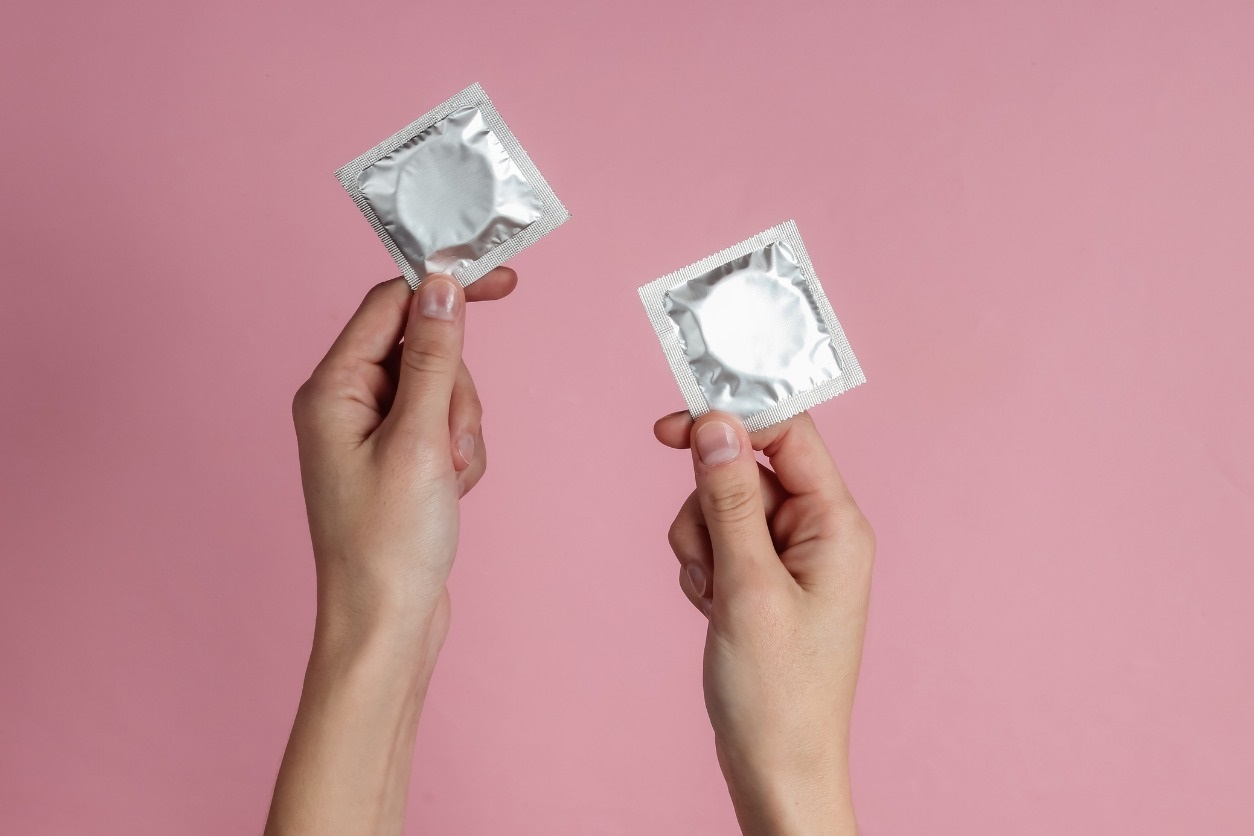7 Myths about the HPV Vaccine: HPV Vaccine Facts and the Science Behind Them

Written By: Claire C. Conley, PhD - Postdoctoral Fellow, H. Lee Moffitt Cancer Center; Monica L. Kasting, PhD - Assistant Professor, Purdue University
The human papillomavirus (HPV) vaccine – or Gardasil – has been around for more than a decade! The vaccine is safe, effective, and protects against many strains of HPV, which is the most common sexually transmitted infection and a cause of several cancers. Despite the numerous benefits, several misconceptions about the HPV vaccine still persist. It’s important to know the facts about this vaccine. Below, we discuss 7 common myths about the HPV vaccine, and the science that busts those myths!
1. MYTH: HPV vaccination is not safe.
FACT: The HPV vaccine is safe and doesn’t contribute to any serious health issues. Like any vaccine or medicine, the vaccine may cause mild reactions. The most common are pain or redness in the arm where the shot is given. Other typical side effects include low-grade fever, headache or feeling tired, nausea, or muscle or joint pain – all of which are temporary. Rarely, an allergic reaction can occur, and individuals should not get the vaccine if they are allergic to any of the components.
The vaccine itself has been researched for many years (including at least 10 years of research before it could even be used in humans) and is highly monitored by the Food and Drug Administration. Vaccinations in the U.S. have never been safer because of the stringent standards the FDA uses.
2. MYTH: HPV vaccination can lead to infertility.
FACT: Claims of HPV vaccine-induced infertility due to premature ovarian failure are anecdotal and not backed by research or clinical trials. A recent study of over 200,000 women found no association between the HPV vaccine and premature ovarian failure.1 In fact, the HPV vaccine can actually help protect fertility by preventing gynecological problems related to the treatment of cervical cancer. It’s possible that the treatment of cervical cancer could leave a woman unable to have children. It’s also possible that treatment for cervical pre-cancer could put a woman at risk for problems with her cervix, which could cause preterm delivery or other complications.
3. MYTH: HPV vaccination is not effective at preventing cervical cancer.
FACT: In the studies that led to the approval of HPV vaccines, the vaccines provided nearly 100% protection against persistent cervical infections with HPV types 16 and 18, plus the pre-cancers that those persistent infections can cause. In addition, a clinical trial of HPV vaccines in men indicated that they can prevent anal cell changes caused by persistent infection and genital warts.2 HPV-associated cancers can take decades to develop, so it will be a few more years before we will be able to have studies comparing cancer rates. Advanced pre-cancers have long been universally accepted markers for cancer.
4. MYTH: Only girls need to get the HPV vaccine, men and boys don’t need it.
FACT: HPV affects both men and women. It can cause genital warts, penile, anal, and oral cancer in men. It can also be easily transmitted to a sex partner without either of the partners knowing.
5. MYTH: Getting the HPV vaccine will encourage adolescents to be more sexually promiscuous.
FACT: No research links the HPV vaccine to increases in sexual activity. There is no evidence that giving the HPV vaccine is linked with higher sexual activity. In fact, a recent article reviewing studies of over 500,000 individuals revealed that there was no increase in sexual activity after HPV vaccination.3 In fact, vaccinated participants actually engaged in safer sexual practices than unvaccinated participants! Also, adolescents who get the vaccine don’t have more partners after they become sexually active.4
6. MYTH: The HPV vaccine doesn’t protect against enough strains of human papillomavirus to be worth getting.
FACT: The current HPV vaccination protects against nine types of HPV. These nine have been linked to more than 90 percent of genital warts cases, 90 percent of cervical cancers, and 70 percent of anal cancer diagnoses. This vaccination is highly protective to prevent this very common viral infection and to help prevent genital warts and cancers.
7. MYTH: HPV is uncommon, and it’s unlikely I’ll be infected, so there’s no need to get the HPV vaccine.
FACT: The genital HPV infection is the most common sexually transmitted infection and there are over 14 million new infections each year in the United States. It’s so common that nearly every male and female will be infected with at least one type of HPV at least once in their lifetime. Currently, over 80 million Americans are infected.
Want more information about HPV vaccination? Read more at https://www.cdc.gov/hpv/parents/vaccine-for-hpv.html.
References
- Naleway, A. L., Mittendorf, K. F., Irving, S. A., Henninger, M. L., Crane, B., Smith, N., ... & Gee, J. (2018). Primary ovarian insufficiency and adolescent vaccination. Pediatrics, 142(3), e20180943.
- Ali, H., Guy, R. J., Wand, H., Read, T. R., Regan, D. G., Grulich, A. E., ... & Donovan, B. (2013). Decline in in-patient treatments of genital warts among young Australians following the national HPV vaccination program. BMC infectious diseases, 13(1), 140.
- Kasting, M. L., Shapiro, G. K., Rosberger, Z., Kahn, J. A., & Zimet, G. D. (2016). Tempest in a teapot: A systematic review of HPV vaccination and risk compensation research. Human vaccines & immunotherapeutics, 12(6), 1435-1450.
- Ogilvie, G. S., Phan, F., Pedersen, H. N., Dobson, S. R., Naus, M., & Saewyc, E. M. (2018). Population-level sexual behaviours in adolescent girls before and after introduction of the human papillomavirus vaccine (2003–2013). CMAJ, 190(41), E1221-E1226.
More Articles

Women’s Health: Facts about Birth Control, STIs and Condoms
Get the facts on STIs, birth control and condoms, and how they affect women's health.

Women’s Heart Health Part 3: Tips for Talking to your Doctor
Many women struggle to discuss heart health with their doctor. This is the third part of a three-part series on Women's Heart Health.


